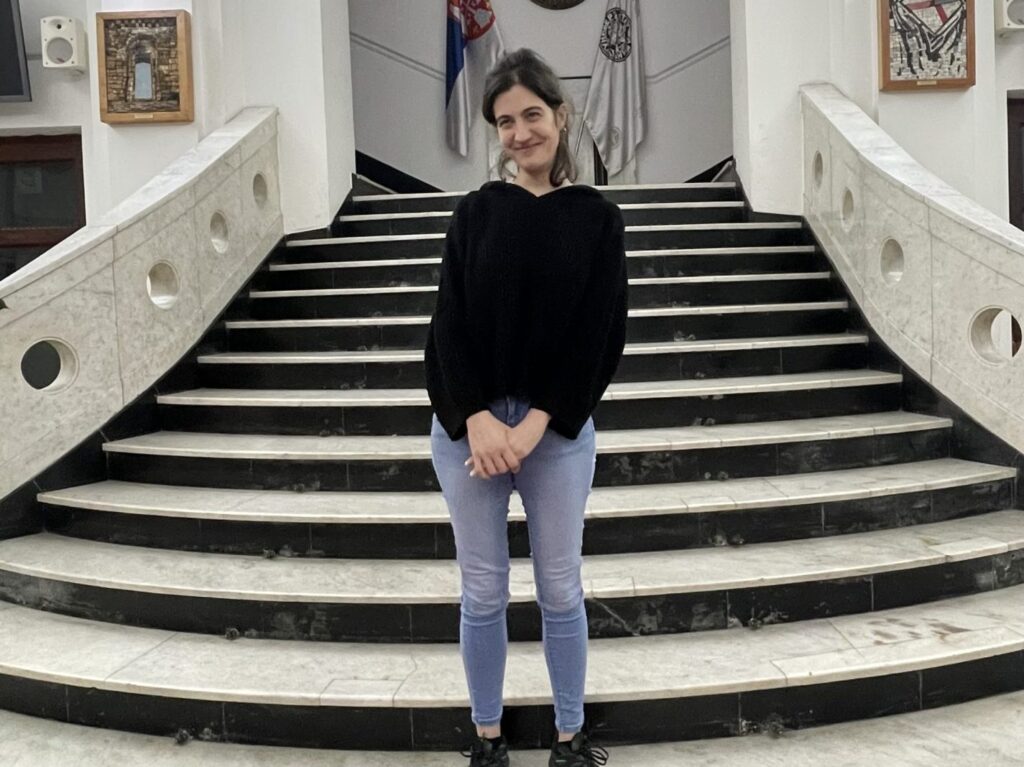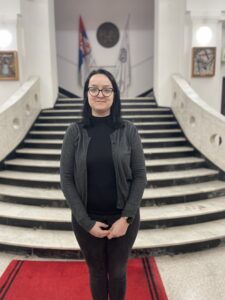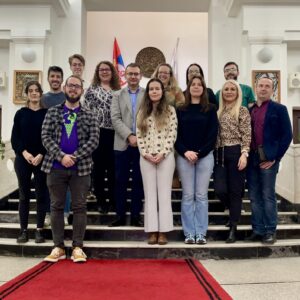Sandra Rizzo Calderon from Spain is participating in the European Junior Water Programme (EJWP). She conducts research as a PhD student at the University of Cadiz, focusing on the microbial ecology and biogeochemistry of coastal areas. “My research delves into how extreme climatic events impact the biogeochemical dynamics of shallow coastal systems,” explains Calderon.
What is your current work position?
“My current position is as a PhD student at the University of Cadiz, Spain, within the Microbial Ecology and Biogeochemistry Laboratory. My research focuses on understanding the effects of extreme climatic events on the biogeochemical functioning of shallow coastal areas. My work is aimed at understanding the intricate relationships between microbial communities and their environmental stressors, which is crucial for predicting and mitigating the impacts of climate change on coastal ecosystems.”
Can you describe one of your work days?
“Description of a Work Day: A typical day for me as a Ph.D. student involves a dynamic mix of research activities, data analysis, fieldwork, and academic engagements. On certain days, I might be out in the field, collecting samples and other days I can be conducting experiments in situ. My tasks, also, include processing sediment or water samples, conducting chemical analyses, etc. Depending on the stage of my research, I also spend time coding and analyzing data obtained from experiments or field observations. In addition to research activities, I also participate in seminars, workshops, and conferences relevant to my field of study.”
What do you consider the most interesting part of your job?
“These environments are incredibly dynamic and sensitive to changes, making them fascinating subjects of study. I find it particularly intriguing to investigate how microbial communities respond and adapt to these environmental stressors, and how these responses cascade through biogeochemical cycles, influencing the overall ecosystem functioning. Unraveling these complex interactions not only enhances our understanding of coastal ecosystems but also provides valuable insights into how they may respond to future climate scenarios.”
What is a topic that you see as increasingly important in the water sector?
“Given the significance of water management and sustainability, an increasingly important topic in the water sector is the integration of nature-based solutions. Nature-based solutions involve utilizing natural processes and ecosystems to address water-related challenges, such as water quality degradation, flooding, and water scarcity. Furthermore, the adoption of nature-based solutions aligns with the principles of biodiversity conservation and ecosystem restoration, contributing to the protection of valuable habitats and species. As climate change exacerbates water-related risks, such as droughts and extreme weather events, the importance of nature-based solutions in building resilience and adapting to changing environmental conditions becomes even more pronounced.”
What do you expect from international cooperation?
“International cooperation in the water sector fosters knowledge exchange, capacity building, and policy harmonization, enabling effective solutions to global water challenges. It mobilizes resources for infrastructure development, climate adaptation, and transboundary water management. Collaboration promotes sustainability, resilience, and equitable access to water resources, crucial for achieving global development goals.”
Why are you joining EJWP?
“Joining this course provides an opportunity to enhance soft skills crucial for effective communication, collaboration, and leadership in the water sector. This course offers tailored training and networking opportunities to develop skills such as problem-solving, teamwork, and adaptability, essential for addressing complex water challenges and driving positive change within the industry.“
What and where did you study?
“In 2018, I obtained my Bachelor of Science degree in Marine Science from the University of Alicante and in 2019, I obtained a Master of Science in Oceanography from the University of Las Palmas de Gran Canaria, where I received a scholarship funded by ORIS. During my MSc I had the opportunity to work within the research line “VULCANO-I and VULCANA-II” on the study of the physical-chemical anomalies and heat fluxes quantification over Tagoro submarine volcano, el Hierro Island in the Spanish Institute of Oceanography (IEO-Tenerife). I have recently joined the MEB Laboratory group, where I am working on my PhD thesis within the project EXTREME-FUN.”




